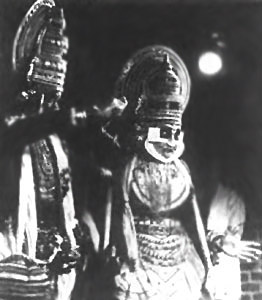 Asif Currimbhoy was born in an aristocratic Bombay Muslim family in 1928. He studied in USA and worked as an executive in a multinational oil company. He had exposure to experimental American theatre and an avid interest in history led him to compose about thirty plays featuring a powerful engagement with life. All of these plays had a compelling quest for truth and equally strong compassion for humanity. At least a dozen deserve close attention in any study of English theatre in India.
Asif Currimbhoy was born in an aristocratic Bombay Muslim family in 1928. He studied in USA and worked as an executive in a multinational oil company. He had exposure to experimental American theatre and an avid interest in history led him to compose about thirty plays featuring a powerful engagement with life. All of these plays had a compelling quest for truth and equally strong compassion for humanity. At least a dozen deserve close attention in any study of English theatre in India.
The Doldrumrners in 1961, featuring four youths dissatisfied with life, was banned in Bombay for promiscuity. The Dumb Dancer in 1962 innovatively presented a Kathakali play-within-a-play. Goa in 1966 was an allegory on India`s liberation of the Portuguese held enclave, showed that neither side was to blame but neither really won. The mixed parentage heroine, who feigns a `pure` Portuguese descent, is contrasted with her dark skinned daughter. Inquilab in 1971 depicted the contemporary Maoist Naxalite movement in Bengal and Sonar Bangla in 1972 depicted the topical Bangladesh war. Currimbhoy achieved his social purpose without moralizing or compromising his art. Rich in theatrical devices, his work-incorporated monologues, choruses, chants, songs, mime, slide projections, and filmed footage. His plays were ignored by Indian directors, but had successful runs in the USA. Some of the names can be mentioned as The Dumb Dancer at Cafe La Mama, off-off-Broadway in 1966, and Goa on Broadway in 1968. Afterwards, Goa was selected to inaugurate the Shri Ram Centre, Delhi in 1970, and Tarun Roy produced Inquilab in Bengali translation in Calcutta in 1973. Currimbhoy also wrote movie scenarios and television scripts. This personality died on 1994.
This article is a stub. You can enrich by adding more information to it. Send your Write Up to content@indianetzone.com




